Shure has been around since 1925, and over the years they have built several microphones that have become a well-known classic in the music industry. Among these are the Shure SM58-LCs, the KSM32s and the newer Shure Beta mics.
In this review, we are going to take a look at which Shure microphones are the best for recording vocals. For beginners, the classic Shure SM58-LCs come to mind as the microphone of choice for vocals. For more advanced musicians or professional studios, the Shure KSM32 mic are a common staple in recording studios.
Personally, I have been recording for over a decade in my home recording studio and found Shure mics to be always the most reliable and clearest for vocals, apart from the Neumann mics.
With that being said, there is no one “perfect’ Shure mic for recording vocals. It all depends on your budget and your recording needs – one mic may not be necessarily better than the other. But if you are just starting out with recording at home, this list is for you.
The Best Shure Mics for Recording Vocals
1. Shure SM58-LC Dynamic Vocal Microphone
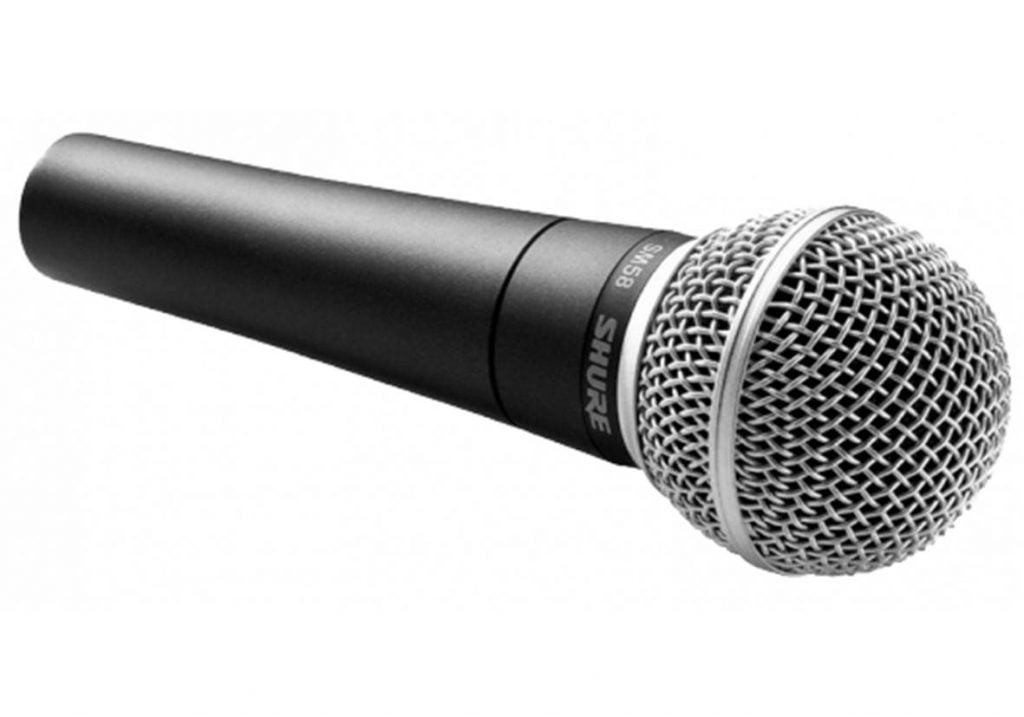
The most iconic microphone from Shure…
When most beginners start out, they go for something like the Shure SM58-LC dynamic mics – and for good reason. These mics have been around for a long time, and have become a classic staple in the music industry for beginners and are considered the “rite of passage” for every new musician.
Specifically, the SM58-LCs have a frequency response tailored for vocals, with a brightened midrange and nicely tuned bass rolloff to control the proximity effect. They are definitely not as sensitive as other large diaphragm condensers, but yet capture enough detail to rival some of them.
Shure tried to improve on the SM-58LCs with the SM58-beta, but the beta mics sound relatively brighter and less well-balanced for vocals. If you want to go with something tried and tested, the SM58-LCs are the ones to get.
One thing about the SM58 LCs is that they are budget friendly – it doesn’t cost a lot to get one, and it performs relatively well compared to other large diaphragm condensers out there on the market.
Furthermore, these microphones are as rugged and durable as you can get. They will definitely survive the occasional accidental fall and are durable enough to last for a long time.
These are some of the most iconic Shure mics around and you can’t go wrong with these if you are just starting out or need to add a couple of mics to your home studio.
Check them out here:
Up next…
2. Shure SM86-LC Condenser Mic
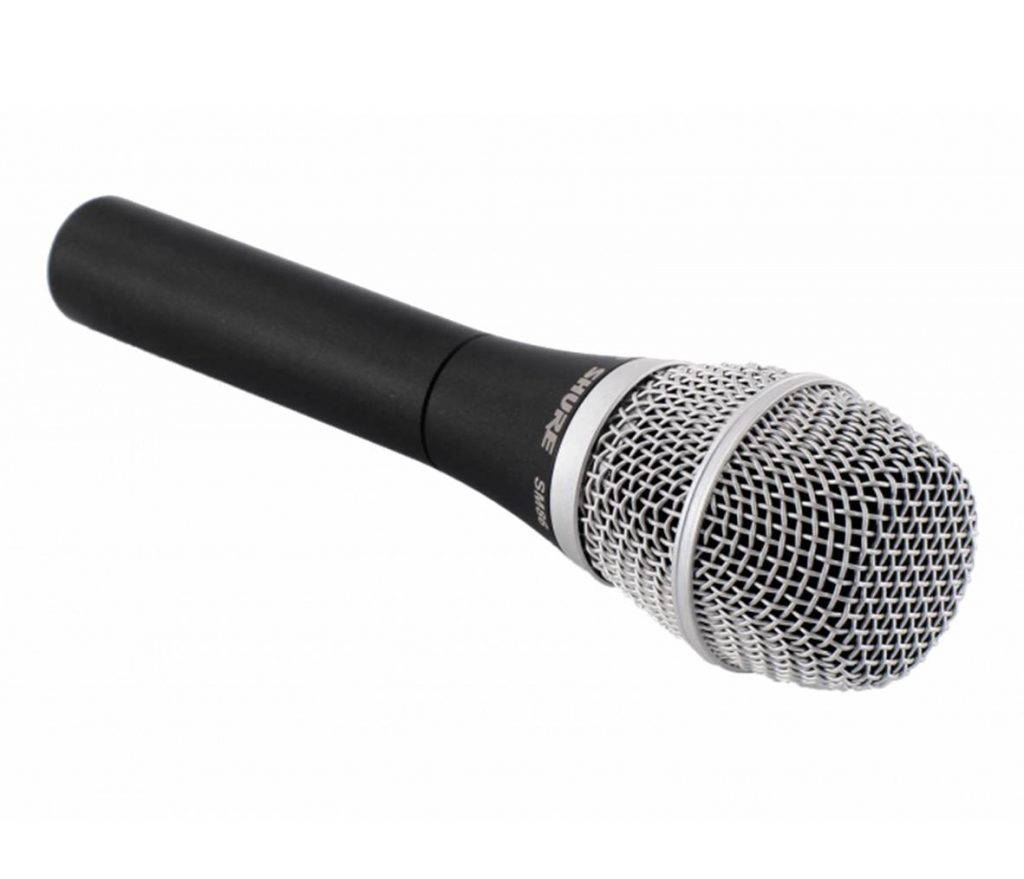
A more sensitive alternative to the Shure SM58-LCs…
If you need something more sensitive than the SM58-LC dynamic mics, the Shure SM86-LCs are your answer. This mics will give you exactly what you need for recording the crispness in your vocals and subtle details.
The clarity of the vocals that you get with this mic is astoundingly clear – and you’ll notice the difference in your recordings when you start with these. There’s a tiny boost in the high-end but makes your vocals sound more natural and smooth.
For the best sound performance, a load impedance of at least 600 ohms is recommended. The load may be as low as 160 ohms, but a reduction in output level and output clipping may result.
Other features of the SM86-LC include a 3-point stack mount to minimize handling noise and a 2-stage pop filter to reduce wind noise. The mic has a cardioid polar pattern which minimizes unwanted background noises and is great for home studio recording.
Overall, the Shure SM86-LCs give you a very clean, crisp and natural vocal sound, with a touch of Shure ruggedness to the mic construction.
Check them out here:
3. Shure BETA 87A Dynamic Mic
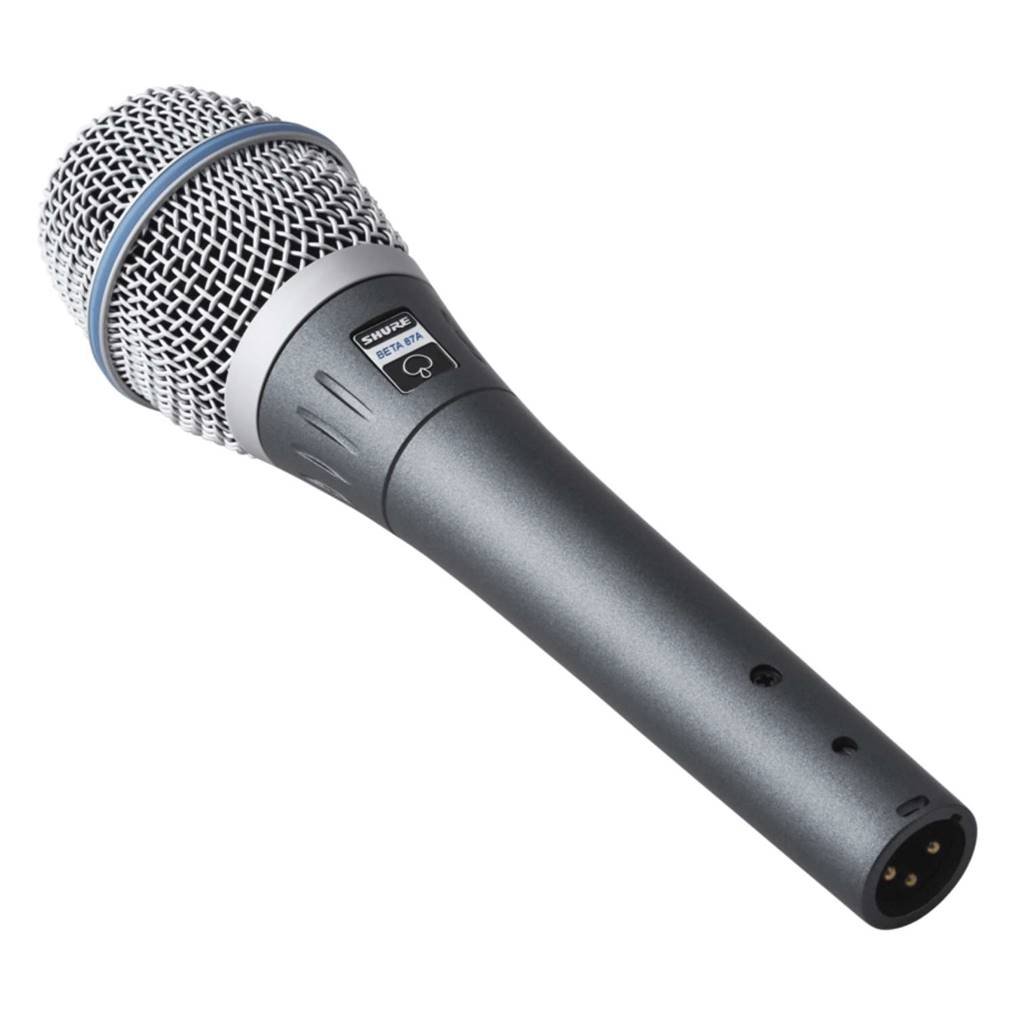
Built for studio-grade clarity for live recordings…
One of the best mics to have in your home recording studio is the Shure BETA 87A. Compared with the Shure SM58 and SM86, this mic really shines in terms of capturing brighter vocals with a sparkling high-end, and a gradual presence rise.
While the mic is pretty sensitive, the off-axis noise rejection is excellent. You have to get in close to the mic when singing. This supercardioid pattern gives it good feedback rejection in areas with less than ideal monitor positions in your room.
The sound quality of the BETA 87A is extremely clear, and you don’t get any hint of muddiness with the sound. Compared with the SM 58-LCs, you can definitely hear a clear difference in sound clarity.
With that said, the 87A mic won’t cover up imperfections in vocals like the SM58s, so be prepared that this mic will pick up sounds in your vocals that you might not want.
Apart from this, the BETA 87A has a wide 117dB dynamic range and low-distortion characteristics. It also has an electronic low-frequency roll-off which compensates for the proximity effect.
As with other Shure condensers, the BETA 87A mic comes with a built-in pop filter to reduce plosive sounds and breath noises.
Check them out here:
4. Shure KSM32SL Condenser Mic
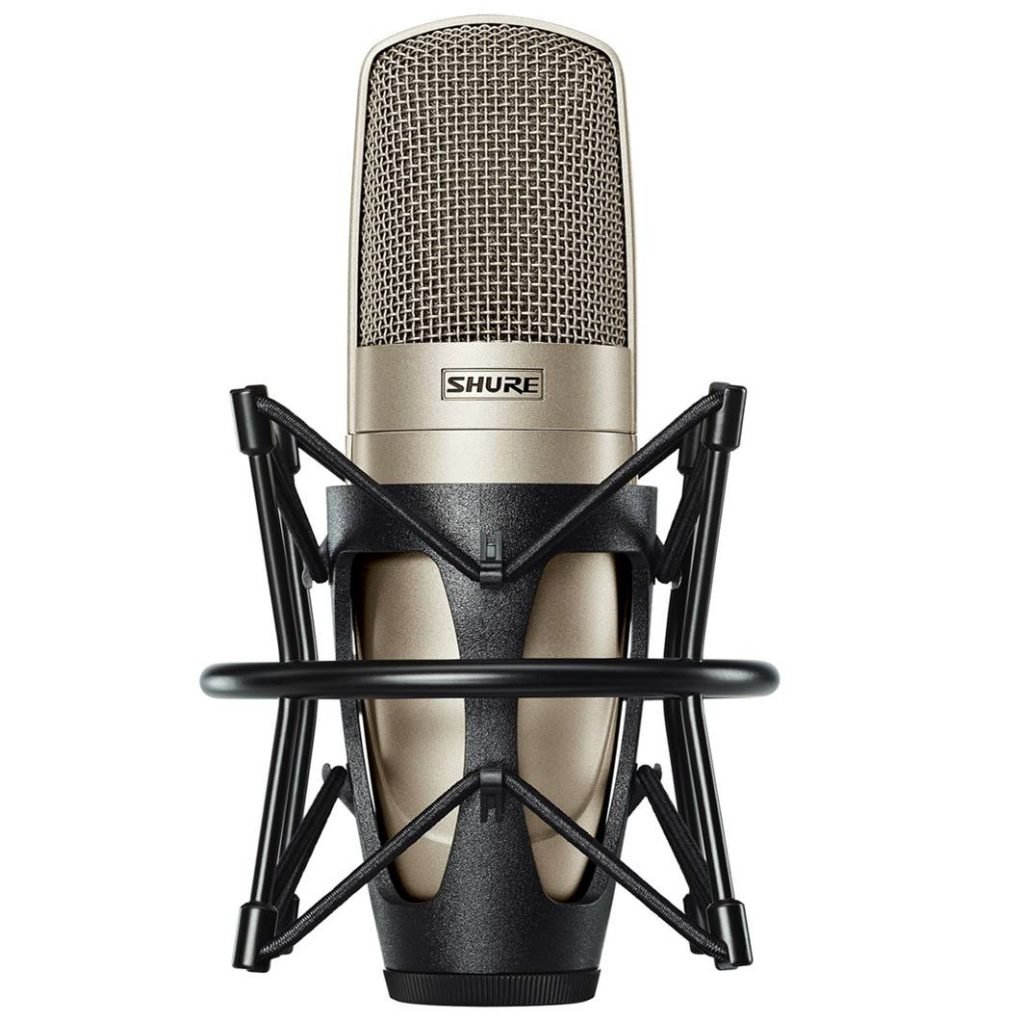
Built for professional studios, the KSM32 is the classic Shure mic for vocals…
The sound produced from the Shure KSM32 is better than anything we’ve tested before. It’s incredibly detailed, clear and pristine, and is the type of microphone that you’d find in a professional recording studio. You can’t beat the amount of detail that this mic can pick up – it’s incredibly sensitive, and picks up all the detail and nuance in vocals.
A lot of musicians say that this mic “takes EQ well”, and this is true to a large extent. With other mics, some frequency ranges can’t be boosted – but not so with the KSM32s. They are really good “DAW” friendly mics that can bring out the best in your vocals or instruments (especially if you are miking something like a grand piano).
The KSM32 is constructed with a diaphragm that provides extended low-frequency response and nice proximity effect. It has very good transient response, and comes with a 15 dB attenuation switch for handling extremely high sound pressure levels.
If the proximity effect is too high, there’s also switchable low-frequency filters which provide greater flexibility to reduce background noise and counteract the proximity effect.
As with all Shure mics, it also comes with a pop filter protection grille and an internal shock mount to reduce noise transmission. That said, it does help to have a separate pop filter with this mic due to its high sensitivity pick-up.
If you are looking for the best Shure mic for professional recording, this is it.
Check them out here:
5. Shure SM27-SC Large Diaphragm Condenser
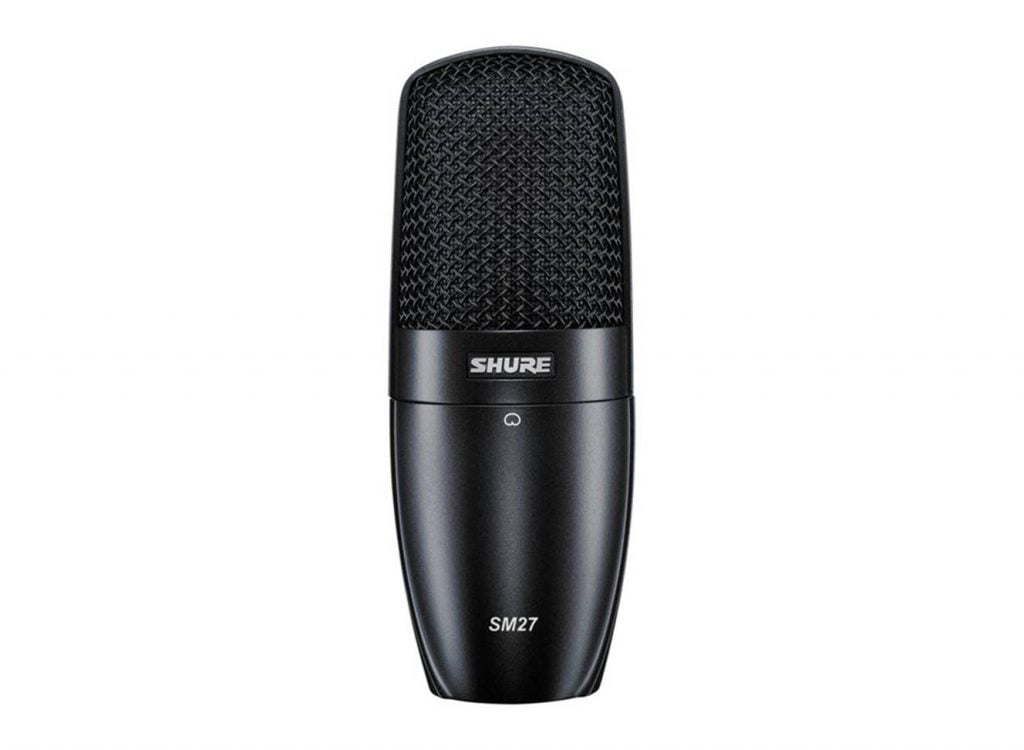
The more affordable alternative to the Shure KSM32/SL…
The Shure SM27 is the younger brother of the KSM32, and sounds almost as good for just a fraction of the price. It’s a condenser mic that requires phantom power for the built-in preamp, and has a flat, neutral frequency response for natural sound reproduction on stage or in your home recording studio. Like all other Shure condensers, the SM27 excels in terms of vocal clarity and neutral sound production with virtually zero noise floor.
Compared with the Shure KSM32 or KSM44, the SM27 sounds almost just as good. It has the same level of detail and clarity as you’d expect from a Shure condenser. This mic is great for tracking vocals or miking acoustic guitars and guitar amps. You’ll definitely need to run the mic through a mic preamp to get enough power though.
What I really like about the SM27-SC is how good it sounds compared to the other high-end Shure mics or a Neumann condenser. The SM27 will handle all the needs of your home recording studio and deliver comparatively good sound quality – you don’t need an all-expensive mic to record good vocals with the SM27!
Finally, the SM27 also features a 3-position switchable low-frequency filter which helps reduce unwanted background noise or counteract the proximity effect.
Check them out here:
6. Shure BETA 57A Dynamic Mic
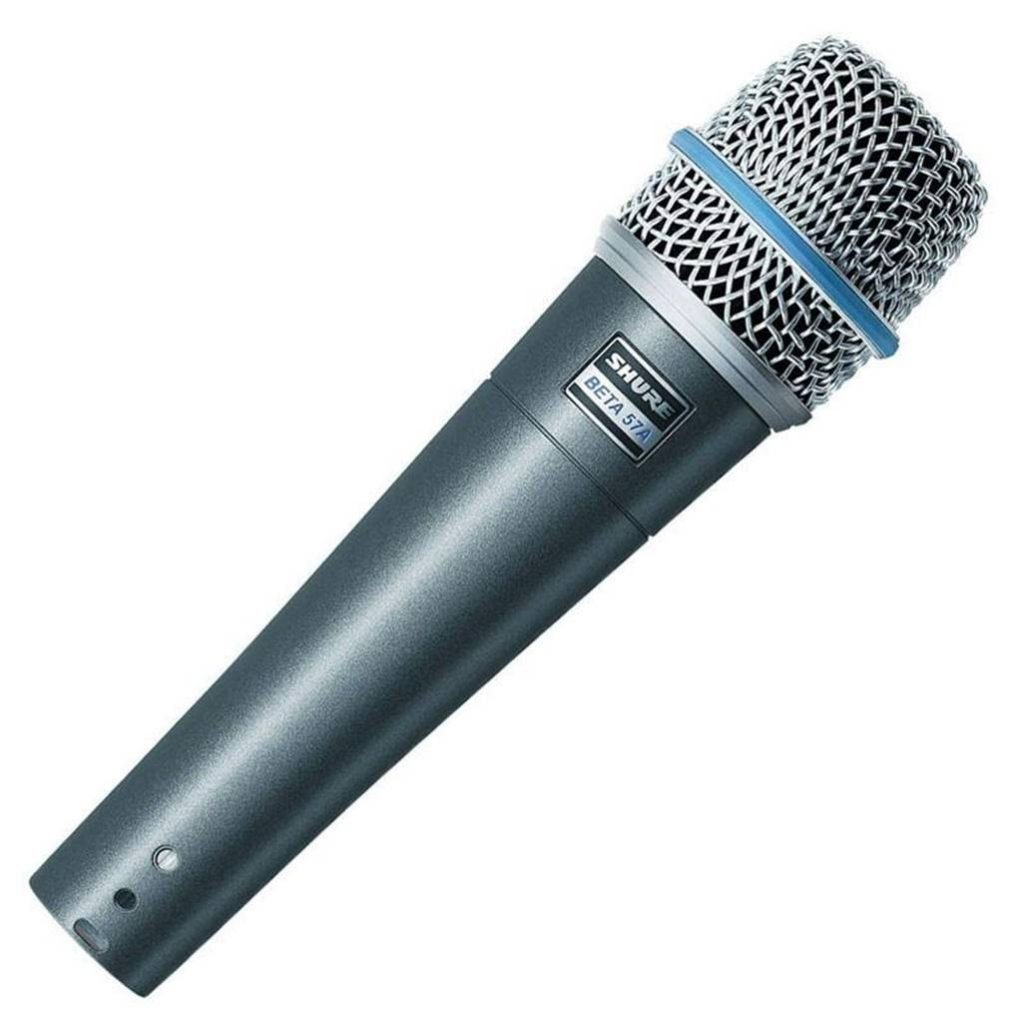
The quintessential home studio dynamic mic…
The Shure BETA 57A is the quintessential home studio workhouse microphone for both home studio and live recording. It’s been used by many (respectable) musicians for over the years, and many people still attest to their sound quality and performance.
Compared with other Shure microphones, the Shure BETA 57A is a better choice for live vocals because it cuts through the muddiness of most small venues. In small enclosed home studios, the BETA 57As sound incredibly clear – and it makes a huge difference to hear your voice “sound” more like yourself in the studio monitors.
Apart from recording vocals, the 57As can be used to mic instruments such as snare drums or acoustic guitars, or guitar cabinets. They have a tailored frequency response to provide vocals, guitars, drums and horns with studio-grade sound.
The BETA 57A is unique in the sense that it has a uniform super-cardioid pattern for high-gain and superior off-axis rejection. It also has a hardened steel mesh grille which facilities the use of the proximity effect instead of just roll-offing the low-end.
Like other dynamic mics, the BETA 57A has a durable and rugged construction and is built to last for a long time.
Check them out here:
7. Shure KSM8/B Dualdyne Vocal Microphone
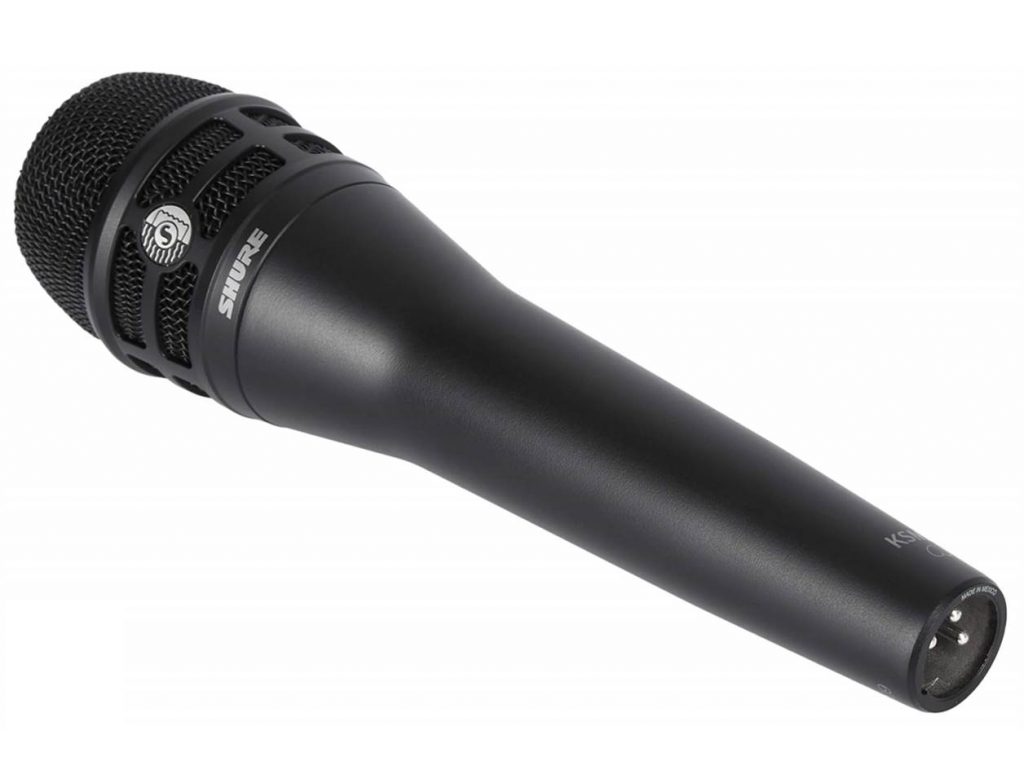
Even better than the Shure BETA mic series…
The Shure KSM8B is a dynamic vocal microphone that delivers true-tone clarity and a very broad frequency response. Compared with the Shure BETA 57A and 58 mics, this mic does not lack the frequency response in the upper highs and lower-ends that you might find “missing” in the BETA series. They sound almost as good as a high-end Shure or Neumann mic, and have really good transient response for a dynamic mic.
The KSM8 mic features a patented cartridge design with two ultra-thin diaphragms and an inverted airflow system for greater sensitivity. This mic also gives you really good control over the proximity effect and increases the working distance without on-axis coloration.
The mids and highs on this headphone are neutral and natural sounding. They also deliver exceptional rejection of handling noise without any loss of low-frequency response.
This is great if you need accurate, flat frequency response which minimizes the need for EQing and processing (which is what you should ideally aim for in home studio recording).
Like other Shure dynamic mics, the KSM8 has a cardioid polar pattern for off-axis sound rejection.
Check them out here:
8. Shure SM7B Cardioid Dynamic Mic
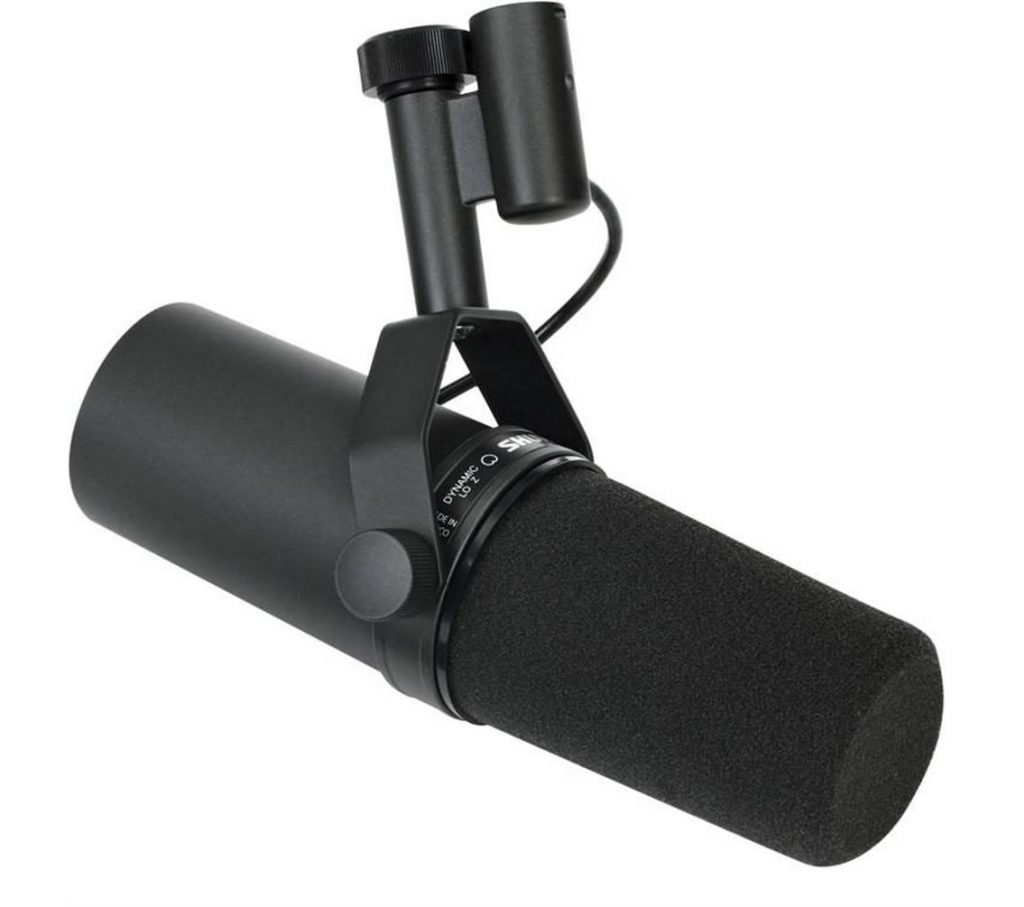
Best described as a hybrid of a dynamic and condenser mic…
The Shure SM7B microphone is designed specifically for musicians and songwriters who record at home. Put simply, the SM7B mic is a fantastic dynamic microphone with an SM58-like character that works for robust studio recordings if you have a good preamp to use with it.
Being a dynamic mic, the SM7B does not have its own preamp and is not as sensitive as a condenser; it’s therefore not generally suited for delicate singing voices, but will handle loud vocals easily – the capsule is robust enough to handle all that energy.
With that said, the SM7B is much more sensitive than the Shure SM58-LCs. Its capsule elements are thinner and much more sensitive, and with a good preamp it can mimic a good condenser mic.
There’s a subtle “character” to the audio sound pattern of the SM7B mic. It mimics the SM58’s presence boosting curve, so the SM7B can give your recorded voice the classic Shure SM58 “live” character if you pair it with the right preamp. The mic is also more sensitive, and has some of the qualities of a condenser mic with a cardioid pattern pickup.
Overall, if you want a hybrid between a dynamic and condenser mic, the Shure SM57Bs offer a smooth, flat and neutral wide-ranging frequency response. It has exceptionally clean sound and natural vocal reproduction, making them truly one of the most versatile home studio mics you can get.
Check them out here:
9. Shure BETA 58A Dynamic Mic
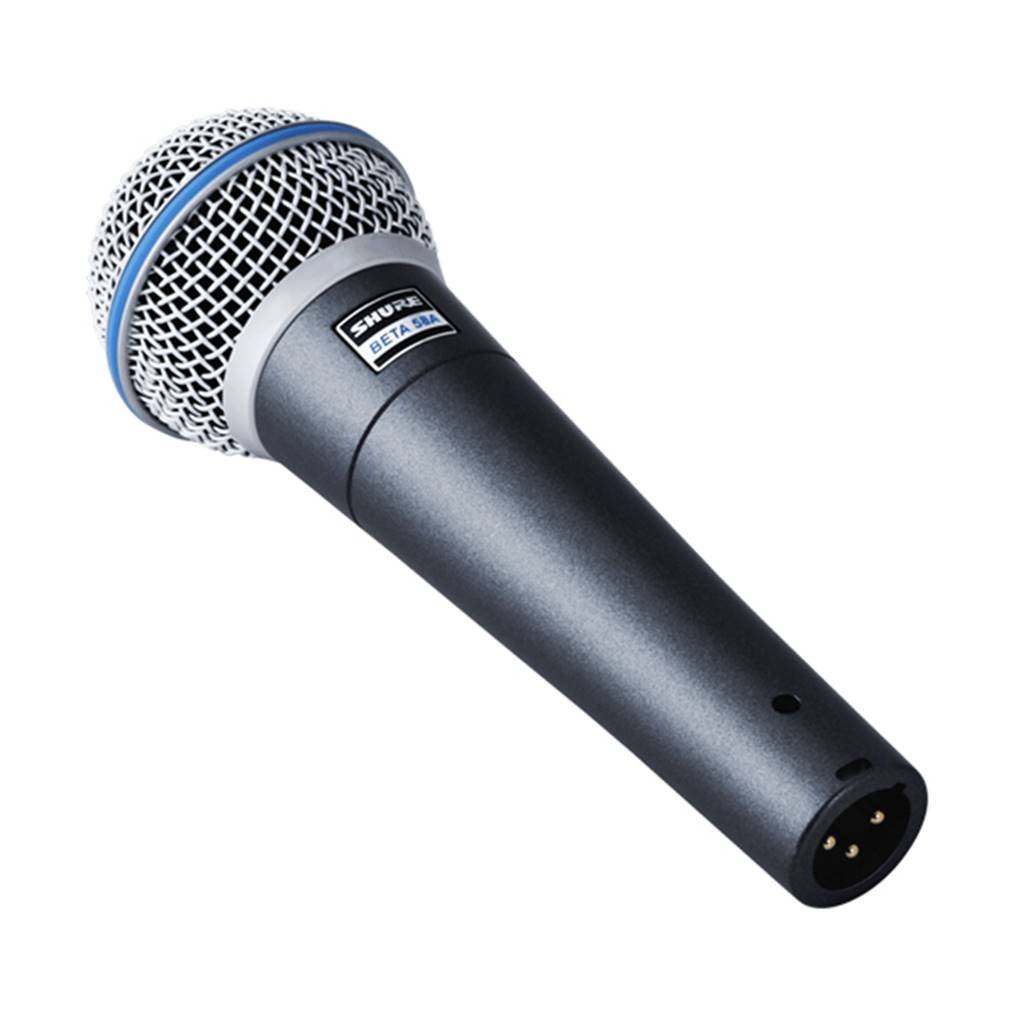
The cheaper alternative to the Shure BETA 87A…
If you are looking for a Shure mic that’s tailored for vocals AND is cheaper than the Shure BETA 87As, the Shure BETA 58A is your answer. This is Shure’s answer to a dynamic mic that has a frequency response tailored for vocals with a brightened midrange and bass roll-off to control the proximity effect.
Compared with the Shure SM58s, the BETA 58A sounds crisper and more natural, and doesn’t have the muddiness that you get with traditional dynamic mics. It’s really one of the very best live vocal mics you can find that are used by every band/singer out there – even renowned artists use them.
The BETA 58A mic sounds very clear and pristine – with very good detailed sound pickup. You can hear every single detail in your vocals and it also captures the subtle notes with great clarity. While it’s not as clear as the KSM32, it’s almost as good as you can get to a condenser without breaking the bank.
Although the BETA 58As don’t have a frequency response as wide as the BETA 87As, the differences are more subtle than noticeable. They are great for EQing and capture your vocals with a neutral tone with some proximity effect.
Like other Shure dynamic mics, the BETA 58As have a uniform supercardioid pattern for high-gain before feedback and rejects off-axis sound, even in noisy environments. There’s also a steel mesh grille that resists wear and tear over time, making them very durable.
Check them out here:
Next Steps:
To learn more about the types of microphones for home recording, as well as the best condenser mics for recording vocals, check out these posts:
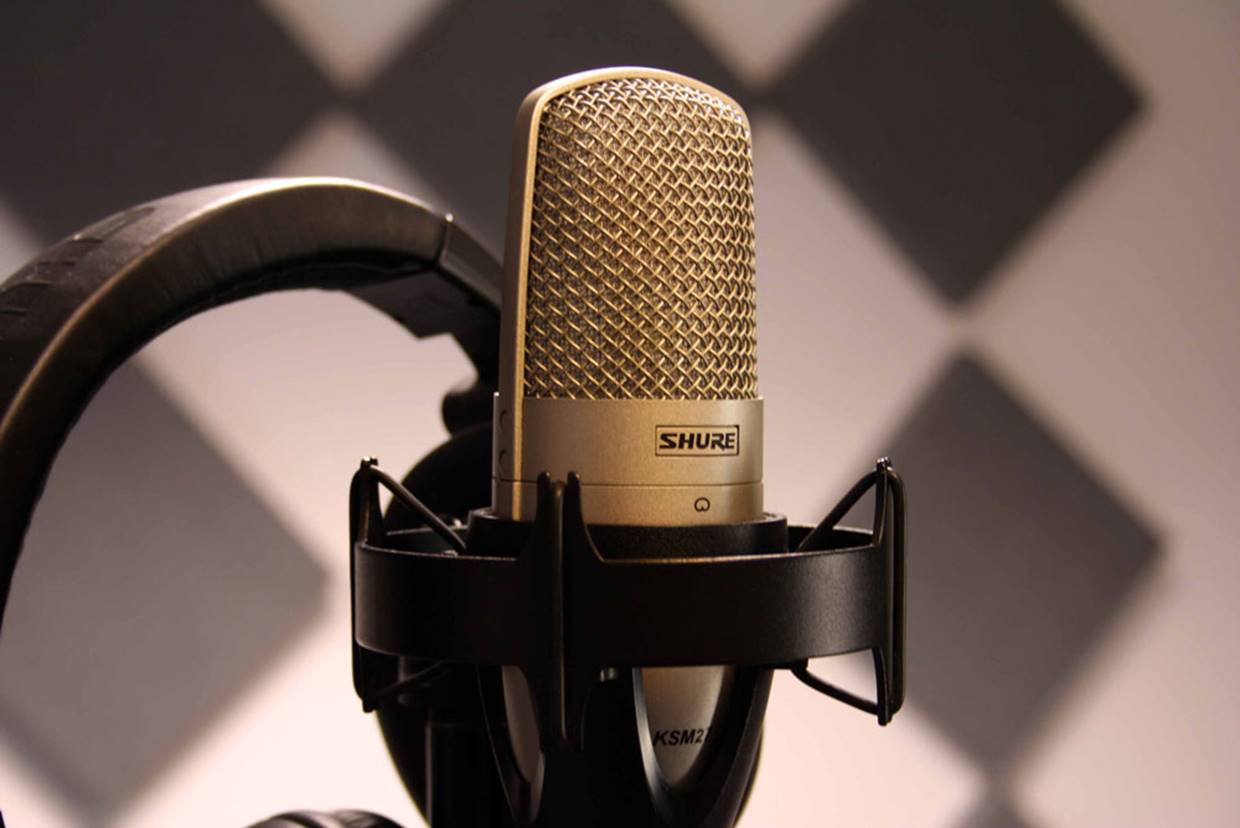
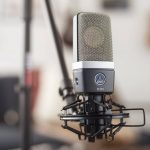
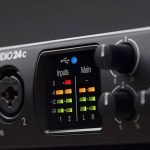
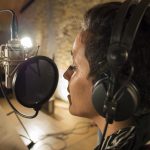
[…] The Best Shure Microphones for Vocals […]